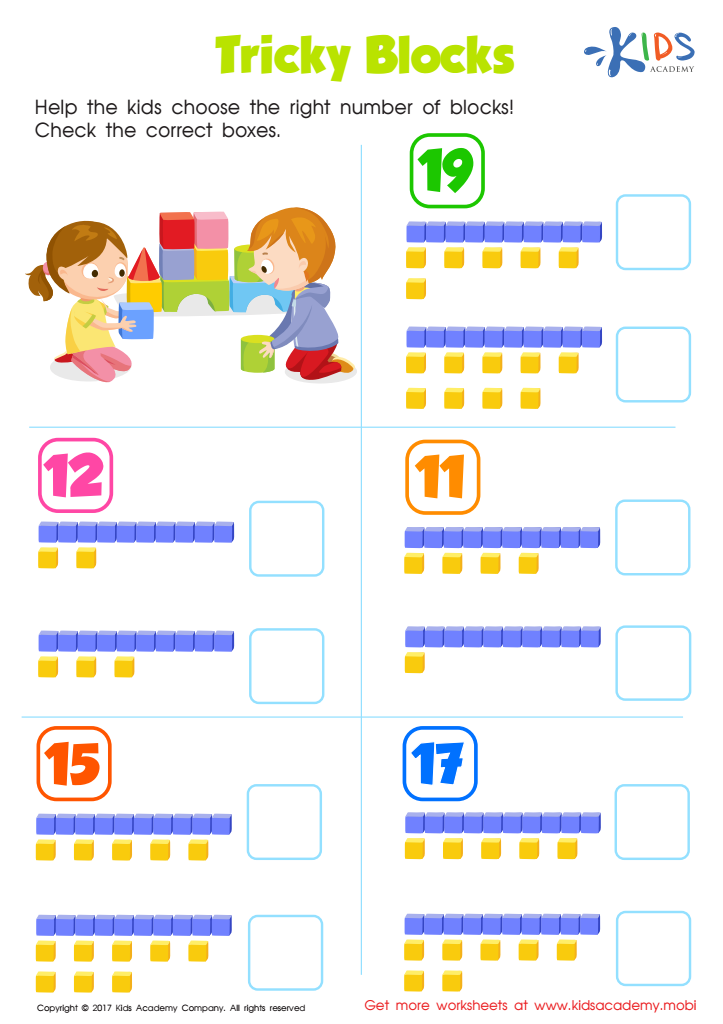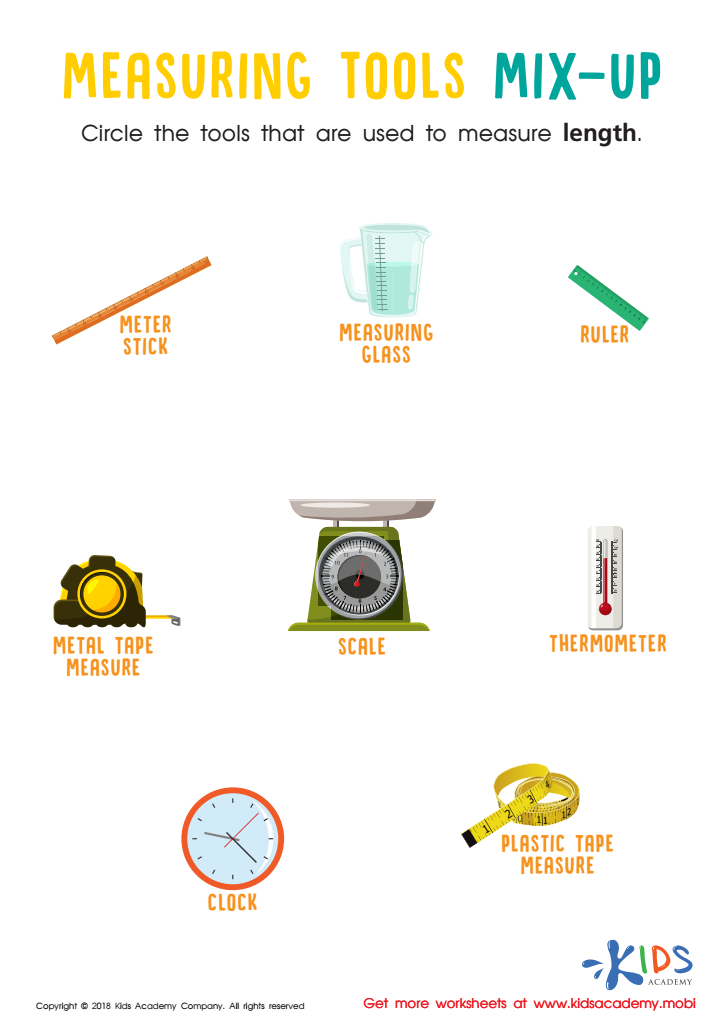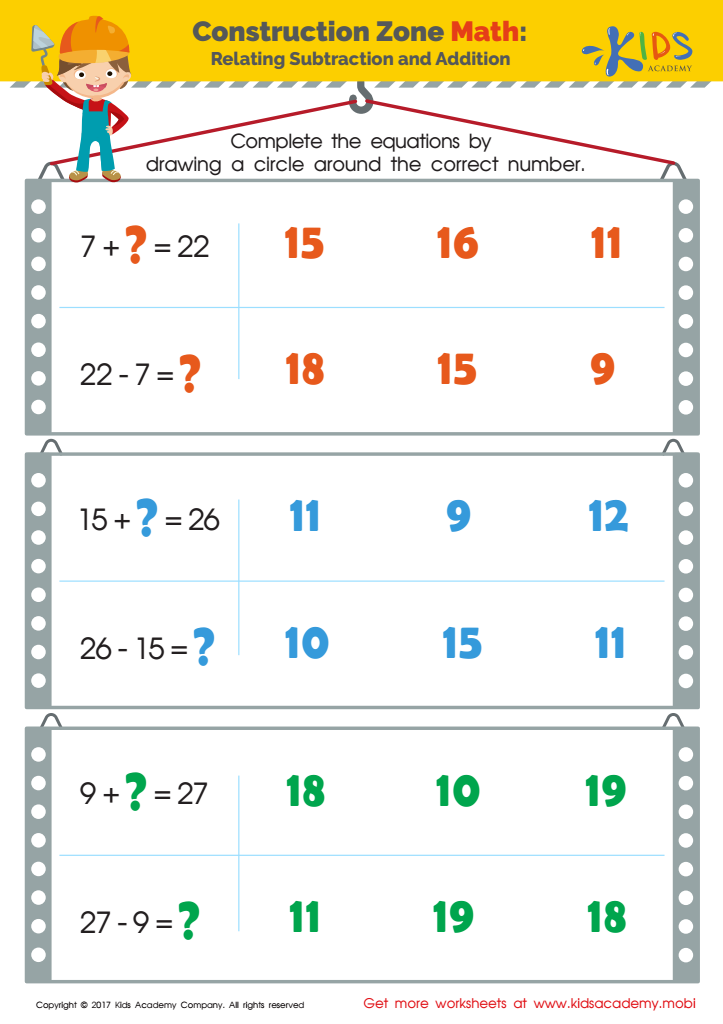Developing logical thinking Normal Math Worksheets for Ages 6-9
3 filtered results
-
From - To
Discover our collection of Normal Math Worksheets specifically designed for children ages 6-9 to boost their logical thinking skills. Our engaging activities focus on developing essential problem-solving abilities through fun and thought-provoking exercises. Each worksheet is crafted to complement your child's learning style, fostering critical thinking and mathematical reasoning. From puzzles to pattern recognition, our resources support a strong foundation in math while making learning enjoyable. Perfect for use at home or in the classroom, these worksheets will inspire your young learners to think creatively and solve problems with confidence. Explore our offerings today and watch their logical thinking soar!


Tricky Blocks Worksheet


Measuring Tools Mix–up Worksheet


Related Addition and Subtraction Facts Worksheet
Developing logical thinking through normal math is crucial for children aged 6-9 as it lays a solid foundation for future academic and life skills. At this critical stage, children's brains are highly receptive and capable of learning complex concepts when presented in a simple, understandable manner. Logical thinking enhances problem-solving skills, a core competence needed not only in math but in many real-life situations. When children solve mathematical problems, they learn to break down tasks, make connections, and think ahead, all of which foster critical thinking.
Moreover, acquiring math skills improves a child's confidence and self-esteem. Successfully tackling math challenges makes children feel accomplished, encouraging a positive attitude towards learning. Early exposure to logical thinking can also spark an interest in STEM (Science, Technology, Engineering, and Mathematics) subjects. These are increasingly valuable in today’s technologically-driven world.
For parents and teachers, focusing on this developmental stage ensures children will have the necessary skills to excel in higher education. This early intervention can help identify learning difficulties, allowing for timely support. By caring about and actively nurturing logical thinking and math at this age, adults play a pivotal role in preparing children not just for academic success but for an innovative, problem-solving future.

 Assign to My Students
Assign to My Students
















